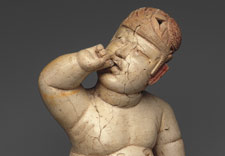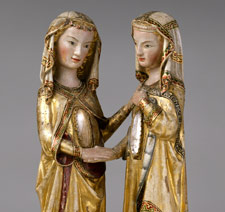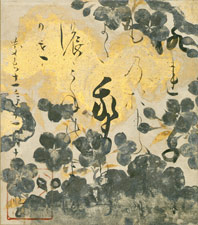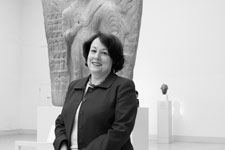New Connections appear every Wednesday. Sign up for a reminder.
Curator of Asian art Denise Leidy uses gesture as the key to unlocking narratives in works of art.
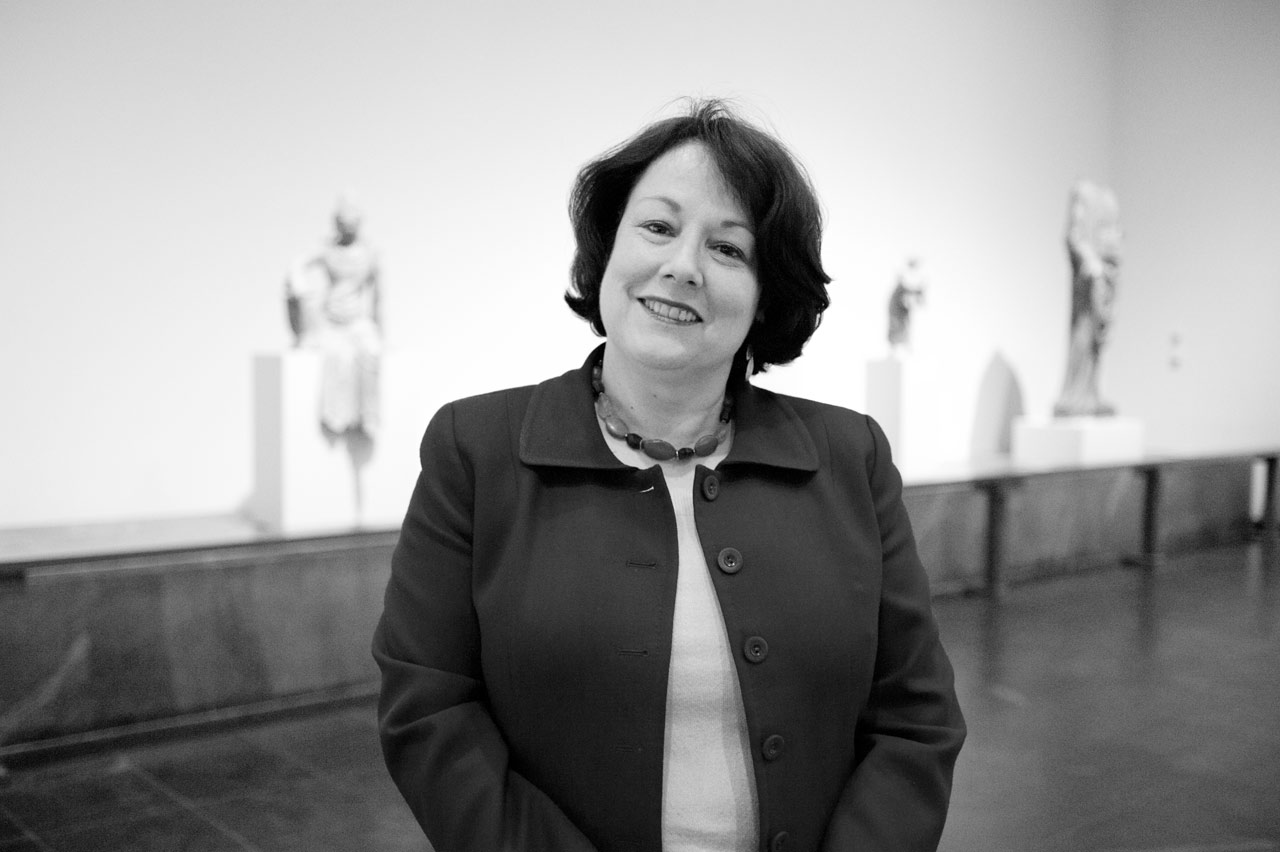 1280852
1280852 8421024
8421024 8171024
8171024 12791024
12791024 8591024
8591024 1280890
1280890 8181024
8181024 10891024
10891024 6751024
6751024 8071024
8071024 6961024
6961024 6461024
6461024 7831024
7831024 6051024
6051024 9021024
9021024 12581024
12581024 10471024
10471024 7151024
7151024 1280852
1280852
I'm Denise Leidy, I'm one of the curators in the department of Asian art, and I'm going to talk about gesture.
My default position is to read gesture to figure out who I'm looking at and what they're doing.
It's what I see first and how I begin to understand almost everything I see.
I'm a mom, and also the eldest of a very large family. I have very fond memories of watching babies
discover their hands. It must be this very human thing to look up and realize that you've got these great things that move and you've got an opposable thumb and you can do things with them.
And I suspect that a great many of the world's babies begin by sticking their hands in their mouths.
One of my favorite sculptures in the Medieval department is the Virgin Mary meeting her kinswoman, Elizabeth, at a moment when they're both pregnant. And you don't actually have to remember the story, I think, to understand the sculpture, because you see two women, they're standing very, very close to each other
they're touching, and one is actually placing her hand over her heart. Any woman might look at the crystals in the bellies of these women, and guess that perhaps they're supposed to be pregnant. And I think
gesture creates both intimacy and passion in this wonderful Persian painting of two lovers who are in the middle of nowhere, who've just finished eating and drinking, and have obviously moved on to the main event, and are having a very romantic time.
And I find the gesture of this unknown, and in my opinion, horribly arrogant Italian young man, very interesting. He's standing there with his hand on his hip, he's staring out at you, and he's holding a book. He's not only holding the book, he's very clearly using his fingers to mark the place. So what is he saying? "You interrupted me while I'm reading, how dare you?" or, "Hey, I can read, whoopie!" Exactly what is going on in this painting?
The hands of this Japanese actor, and particularly the fingers, appear boneless. It's like there's very little power in them. But, I think because the gesture is so exaggerated, you can imagine those hands moving out and grabbing you around your neck, and ending your life.
If I hadn't spent so much of my life learning to read gesture in one artistic tradition
I might not see them quite as much as I do. In this
poem page, you read the actual moment of writing in the way in which you can
read the brush drying out as the artist writes, and then he fills it up again and you have darker ink.
So I think one of the things that happens is that you always see gesture at work. For example
in this bowl, you have to acknowledge that someone made it, and someone painted it, and that same someone wished us all happiness with the writing in the bottom of the bowl.
And then I mean, if hands moving around, made everything in this building, and made the building itself
the Met exists on human gesture.
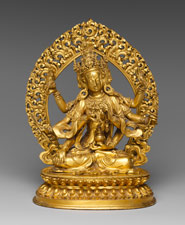 |
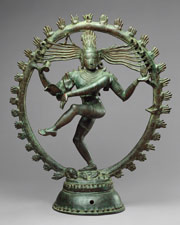 |
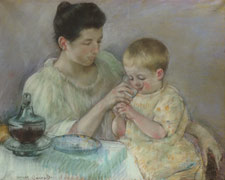 |
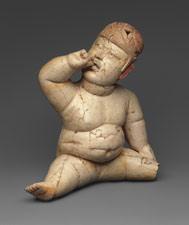 |
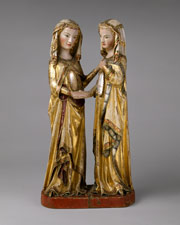 |
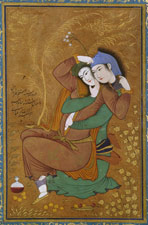 |
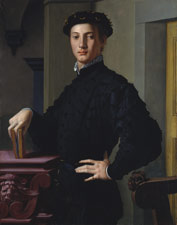 |
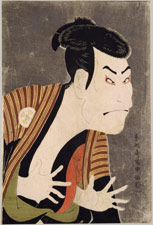 |
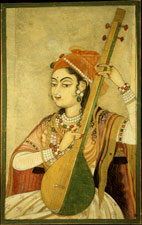 |
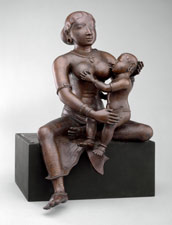 |
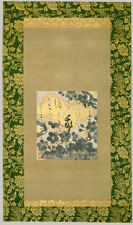 |
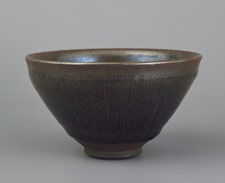 |
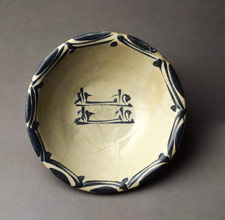 |
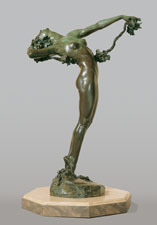 |
Works of art in order of appearanceLast Updated: June 22, 2015. Not all works of art in the Museum's collection may be on view on a particular day. For the most accurate location information, please check this page on the day of your visit. |
||
 |
Buddhist goddess Ushnishavijaya (Zun Shengfomu) Qing dynasty, late 17th–early 18th century China Gilt brass, lost-wax cast Gilt brass, lost-wax cast (2007.75a, b) More information: The Collection Online Not on view
|
 Asian ArtSecond Floor
Asian ArtSecond Floor |
 |
Shiva as Lord of Dance (Nataraja) Chola period, ca. 11th century Tamil Nadu, India Copper alloy Gift of R. H. Ellsworth Ltd., in honor of Susan Dillon, 1987 (1987.80.1) More information: The Collection Online Not on view
|
 Asian ArtSecond Floor
Asian ArtSecond Floor |
 |
Mother Feeding Child 1898 Mary Cassatt (American) Pastel on wove paper, mounted on canvas From the Collection of James Stillman, Gift of Dr. Ernest G. Stilllman, 1922 (22.16.22) More information: The Collection Online Not on view
|
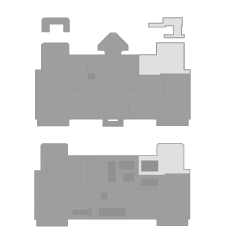 American Paintings and SculptureFirst and Second Floors
American Paintings and SculptureFirst and Second Floors |
 |
"Baby Figure" 12th–9th century b.c. Mexico; Olmec Ceramic, cinnabar, red ocher The Michael C. Rockefeller Memorial Collection, Bequest of Nelson A. Rockefeller, 1979 (1979.206.1134) More information: The Collection Online Not on view
|
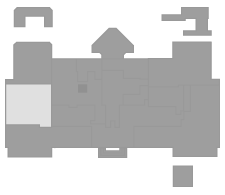 Arts of Africa, Oceania, and the AmericasFirst Floor
Arts of Africa, Oceania, and the AmericasFirst Floor |
 |
The Visitation ca. 1310 Attributed to Master Heinrich of Constance German; Made in Constance Walnut, paint, gilding, rock-crystal cabochons Gift of J. Pierpont Morgan, 1917 (17.190.724) More information: The Collection Online Not on view
|
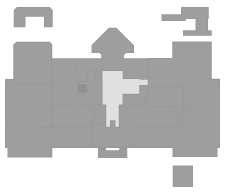 Medieval Art and The CloistersFirst Floor
Medieval Art and The CloistersFirst Floor
|
 |
Two Lovers 1630; Safavid Riza cAbbasi Isfahan, Iran Tempera and gilt paint on paper Purchase, Francis M. Weld Gift, 1950 (50.164) More information: The Collection Online Not on view
|
 Islamic ArtSecond Floor
Islamic ArtSecond Floor |
 |
Portrait of a Young Man 1530s Bronzino (Agnolo di Cosimo di Mariano) (Italian, Florentine) Oil on wood H. O. Havemeyer Collection, Bequest of Mrs. H. O. Havemeyer, 1929 (29.100.16) More information: The Collection Online Not on view
|
 European PaintingsSecond Floor
European PaintingsSecond Floor |
 |
Otani Oniji II dated 1794 Toshusai Sharaku (Japanese) Polychrome woodcut print on paper Henry L. Phillips Collection, Bequest of Henry L. Phillips, 1939 (JP2822) More information: The Collection Online Not on view
|
 Asian ArtSecond Floor
Asian ArtSecond Floor |
 |
A Lady Playing the Tanpura ca. 1735 India (Rajasthan, Kishangarh) Ink, opaque and transparent watercolor, and gold on paper Fletcher Fund, 1996 (1996.100.1) More information: The Collection Online Not on view
|
 Asian ArtSecond Floor
Asian ArtSecond Floor |
 |
Krishna's Foster-Mother Yashoda with the Infant Krishna Chola period, early 12th century India (Tamil Nadu) Copper alloy Purchase, Lita Annenberg Hazen Charitable Trust Gift, in honor of Cynthia Polsky and Leon Bernard Polsky, 1982 (1982.220.8) More information: The Collection Online Not on view
|
 Asian ArtSecond Floor
Asian ArtSecond Floor |
 |
Poem page mounted as a hanging scroll Momoyama period, dated 1606 Painting by Tawaraya Sotatsu (Japanese); Calligraphy by Hon'ami Koetsu (Japanese) Ink on paper decorated with gold and silver The Harry G. C. Packard Collection of Asian Art, Gift of Harry G. C. Packard, and Purchase, Fletcher, Rogers, Harris Brisbane Dick, and Louis V. Bell Funds, Joseph Pulitzer Bequest and The Annenberg Fund Inc. Gift, 1975 (1975.268.59) More information: The Collection Online Not on view
|
 Asian ArtSecond Floor
Asian ArtSecond Floor |
 |
Tea bowl Song dynasty, 960–1279; Jian ware Fujian Province, China Stoneware with hare's-fur glaze Edward C. Moore Collection, Bequest of Edward C. Moore, 1891 (91.1.226) More information: The Collection Online Not on view
|
 Asian ArtSecond Floor
Asian ArtSecond Floor |
 |
Bowl 9th century; cAbbasid Iraq Earthenware, tin-glazed and stained Harris Brisbane Dick Fund, 1963 (63.159.4) More information: The Collection Online Not on view
|
 Islamic ArtSecond Floor
Islamic ArtSecond Floor |
 |
The Vine 1921; revised 1923; this cast, 1924 Harriet Whitney Frishmuth (American) Bronze Rogers Fund, 1927 (27.66) More information: The Collection Online Not on view
|
 American Paintings and SculptureFirst and Second Floors
American Paintings and SculptureFirst and Second Floors |
© 2011 The Metropolitan Museum of Art |
||

